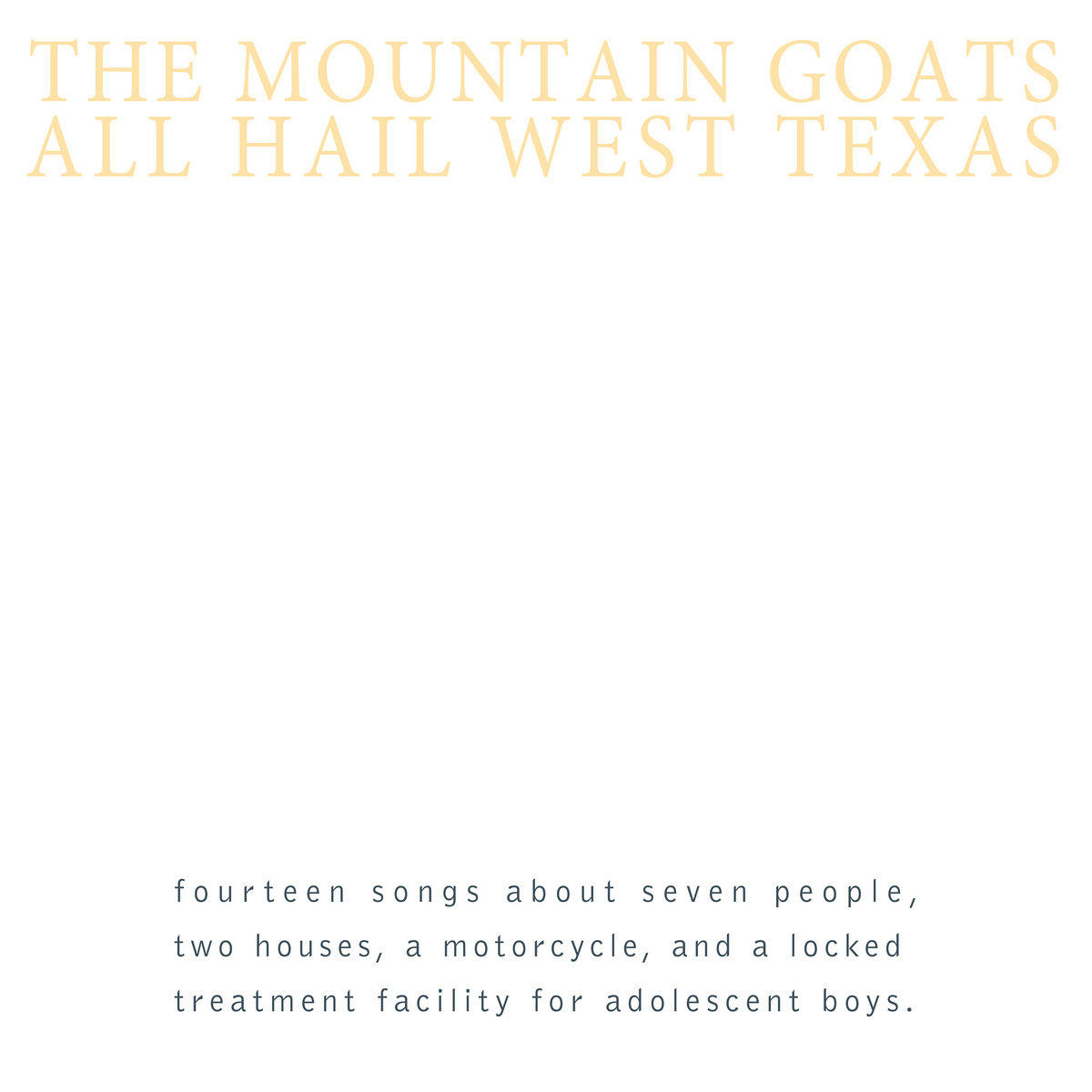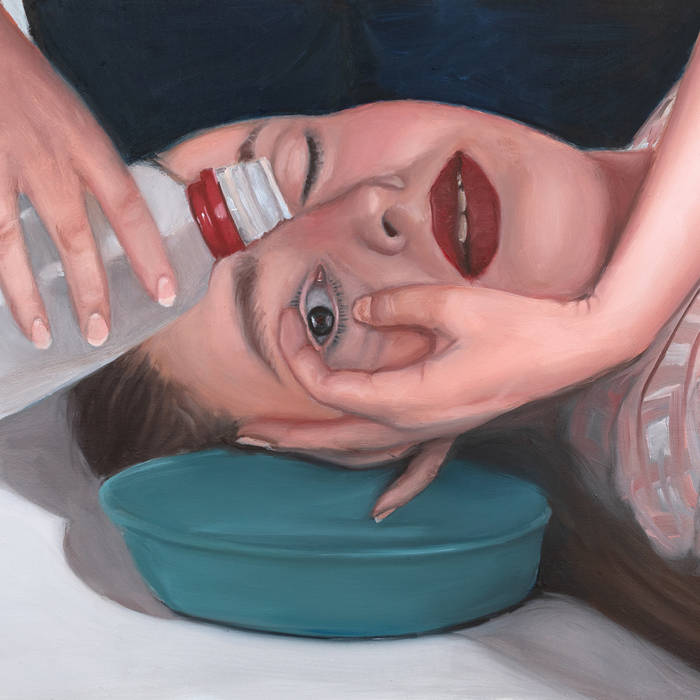SASAMI – Squeeze | Album Review
/My musical DNA was cultivated by the airwaves of Sacramento radio in the late Nineties and early Aughts. The variety wasn’t that much different from today; I had access to alt-rock, hard rock, classic (dad) rock, and whatever the hell adult contemporary is, all of which was available to scan through on my Chrysler Crossfire boombox from The Sharper Image. I was a devout listener to these stations because they gave me access to an ever-expanding catalog of music. My favorite station was the alt-rock haven, KWOD 106.5 FM. KWOD embraced the catch-all term of “alternative,” playing all kinds of genres ranging from goth rock, jangle pop, grunge, alt-metal to ska. Eventually, I got the nerve to plug my headphones into my stereo after my bedtime so I could listen to the late-night programming where the programming became more akin to college radio. Through this radical act of disobedience, I was introduced to “cool” music like Joy Division that alerted me to the fact that there was music beyond what was usually played on air.
When I got to college in 2011, I started listening to the campus radio station, KSMC 89.5 FM. It was here that I dove deeper into music that was actively transgressive of the mainstream. I was listening to local Bay Area bands like Thee Oh Sees and White Fence as I searched for music that I felt could be my own. My taste in music and listening habits have continued to grow over the years, but my early adolescence, when I was largely listening to the radio, will always be the most impactful period in the development of my musical identity.
The recontextualization of grunge and nu metal over the past few years has been a welcome trend to my ears and heart. Not only have I enjoyed immersing myself in the fresh spins provided by bands like Loathe, but I’ve returned home to bands like Soundgarden and System of a Down with a new perspective. These retreads aren’t done as a bit or as a nostalgic soak; instead, it feels like I am coming full circle to the understanding that a lot of that music genuinely kicks ass.
SASAMI’s Squeeze seems to fall in line with this wave of nu metal revivalism, but for me, this album is so much more; it’s a map of my own musical journey. Squeeze is a sharp left turn from the hushed shoegaze found on SASAMI’s debut, trading those soft, sentimental sounds for punchy heavy metal riffs. “Skin A Rat” kickstarts the album with incendiary guitars and drums, the latter courtesy of Dirk Verbeuren from Megadeth, complemented by harsh distorted vocals where SASAMI sings about crushing you under her big boot. “Say It” brings to mind the arena-sized industrial bravado of Nine Inch Nails, and it’s clear that she understands that what makes Trent Reznor a great artist is that underneath all of the noise and theatricality, he’s a melodic savant. The opening riff on the Daniel Johnston cover “Sorry Entertainer” is reminiscent of Weezer’s “Hash Pipe,” but infinitely heavier. SASAMI isn’t just paying homage to metal; she’s bending it to her will to create something that is unique to herself.
This attack of the senses dates all the way back to 2020 when SASAMI released a cover of System of a Down’s “Toxicity.” While her rendition is an acoustic interpretation, SASAMI was tipping her hand to her influences before unveiling her master plan. When she released “Sorry Entertainer” as a single in July of 2021, there was no mistaking the depths of her musical DNA.
But SASAMI isn't just making a metal album with Squeeze; in a stroke of brilliance, she has juxtaposed the snarling vitriol of songs like “Skin A Rat” with a stunning collection of radio-friendly pop songs and ballads. “The Greatest” is a pained love song with a massive chorus that begs to be played to a crowd of thousands. “Call Me Home” and “Tried To Understand” both call to mind the unimpeachable badass Sheryl Crow as SASAMI dissects American ideals of careerism and masculinity. Not only does she sing about some similar themes as Crow, but SASAMI’s voice and delivery feel like direct descendants of one of America’s great artists in the best way. Album closer “Not A Love Song” is a colossal ballad that pulls from SASAMI’s past shoegaze aesthetics as guitars screech and swirl behind her lyrics of attempting to express her feelings to a loved one.
Something fun about Squeeze is that it’s an album that rewards those who are fans of reading the liner notes. There are so many talented people who helped make SASAMI’s vision a reality. Artists like King Tuff, Hand Habits, Vagabon, Mitski, Ty Segall, Patti Harrison, and the aforementioned Dirk Verbeuren are just a handful of musicians who contributed to this record. Personally, I get a kick out of seeing so many people collaborating seamlessly on a project that feels so different from what they are most known for. Beyond that collaborative spirit, it's thrilling to see these artists treating this style of music that I grew up on with such genuine reverence. It goes to show how deep this appreciation goes for all of us. But despite the exciting list of musicians who helped, this is still SASAMI’s show.
I think what I love most about the album is its refusal to be quiet. Everything is so loud and emphatic as SASAMI is taking charge, almost as if she’s peeling your eyelids back and forcing you to bear witness to her raw power. The heavy songs are nasty and brutal, but it's the pop songs that benefit most from this shift in philosophy as they pull from the in-your-face energy of metal to ensure that you hear SASAMI loud and clear. While these songs might not bear the sonic trademarks of metal, they are infused with an emotional heaviness that hits you harder than any riff can.
Squeeze is a chaotic album that feels all over the place as SASAMI shifts between styles, but have no fear; she is in full control. When I listen to the album, I feel like I’m back in my childhood bedroom traversing the airwaves on my Crossfire boombox. I’m in a space of discovery, and SASAMI is my guide.
Connor lives in San Francisco with his partner and their cat and dog, Toni and Hachi. Connor is a student at San Francisco State University and is working toward becoming a community college professor. When he isn’t listening to music or writing about killer riffs, Connor is obsessing over coffee and sandwiches.









